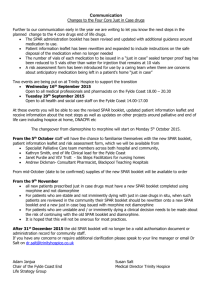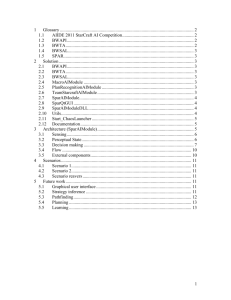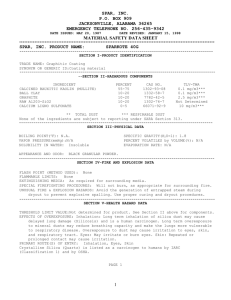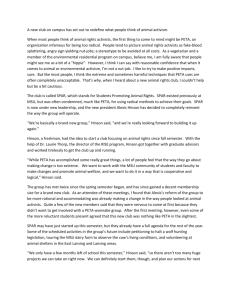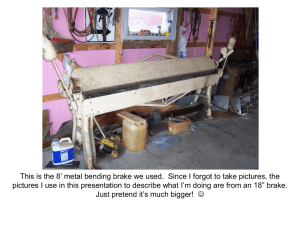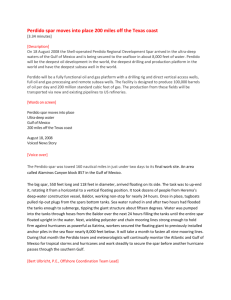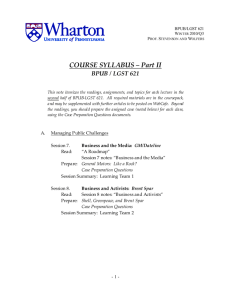Discussion Guide
advertisement
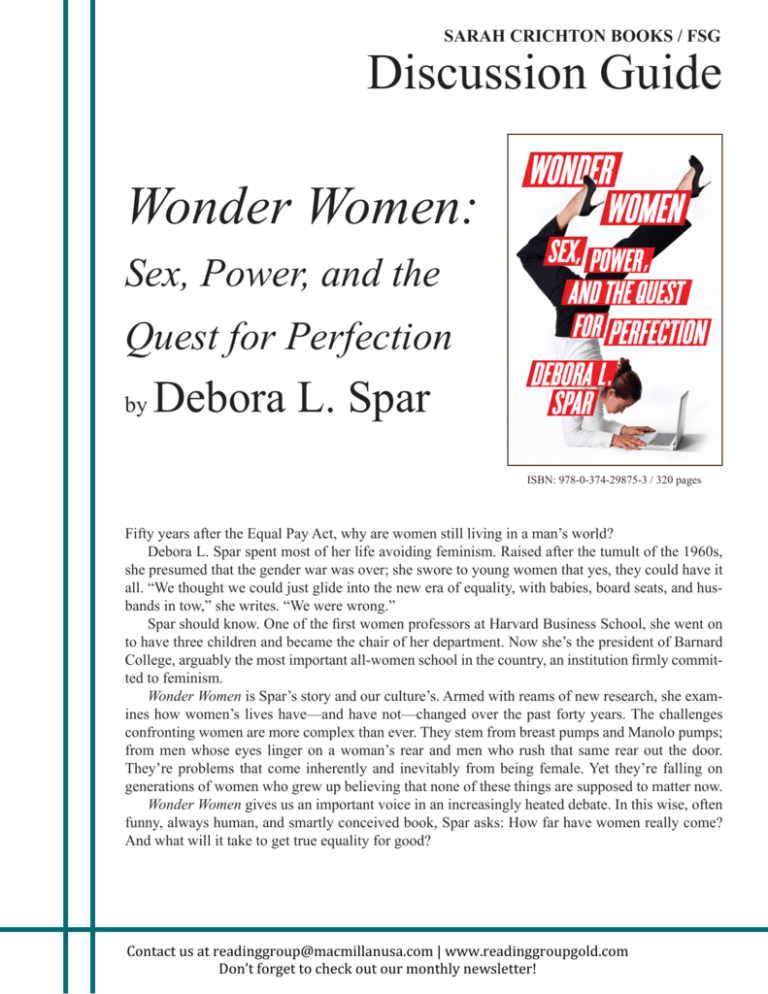
SARAH CRICHTON BOOKS / FSG Discussion Guide Wonder Women: Sex, Power, and the Quest for Perfection by Debora L. Spar ISBN: 978-0-374-29875-3 / 320 pages Fifty years after the Equal Pay Act, why are women still living in a man’s world? Debora L. Spar spent most of her life avoiding feminism. Raised after the tumult of the 1960s, she presumed that the gender war was over; she swore to young women that yes, they could have it all. “We thought we could just glide into the new era of equality, with babies, board seats, and husbands in tow,” she writes. “We were wrong.” Spar should know. One of the first women professors at Harvard Business School, she went on to have three children and became the chair of her department. Now she’s the president of Barnard College, arguably the most important all-women school in the country, an institution firmly committed to feminism. Wonder Women is Spar’s story and our culture’s. Armed with reams of new research, she examines how women’s lives have—and have not—changed over the past forty years. The challenges confronting women are more complex than ever. They stem from breast pumps and Manolo pumps; from men whose eyes linger on a woman’s rear and men who rush that same rear out the door. They’re problems that come inherently and inevitably from being female. Yet they’re falling on generations of women who grew up believing that none of these things are supposed to matter now. Wonder Women gives us an important voice in an increasingly heated debate. In this wise, often funny, always human, and smartly conceived book, Spar asks: How far have women really come? And what will it take to get true equality for good? Contact us at readinggroup@macmillanusa.com | www.readinggroupgold.com Don’t forget to check out our monthly newsletter! SARAH CRICHTON BOOKS / FSG Discussion Guide QUESTIONS AND TOPICS FOR DISCUSSION 1. In Chapter 1, Spar gives examples of television advertising that both glorified and distorted the tenets of the women’s movement. Do contemporary print and electronic publications (advertising, magazines, blogs) persist in creating impossible ideals of beauty, success, and motherhood in the name of commerce, or has this approach been tempered somewhat through the use of more realistic images and languages? What would be some examples? Describe the “Charlie girl” of your generation and what she stands for. 2. Chapter 2 begins with an epigraph, a quote from Simone de Beauvoir’s The Second Sex: “One is not born, but rather becomes, a woman.” In that chapter, Spar describes how the toys her parents gave her as a child reflected their desire to raise her with some degree of freedom from gender stereotypes. What were some of the cultural influences arising in the early 1970s that may have driven her parents’ choices? How have girls’ playthings from the Victorian era to the present influenced the women they have become? What were your influences as a child? Did the toys you played with, the pop singers or movie stars you idolized, help or harm your self-confidence and self-esteem? 3. A key theme in Chapter 3 is the interplay of love, money, and sex in relationships between men and women. How have the changes brought about by the sexual revolution changed women’s points of view on each of these since the 1970s? Compared to women who courted and married before the sexual revolution, do unmarried women today do a better or worse job managing love, money, and sex in the context of their relationships? Do you agree with Spar that greater sexual freedom has meant a loss of power for women? Have men lost anything? 4. In Chapter 4, Spar quotes the “Ana Creed,” a horrifying glimpse into the minds of anorexic adolescent girls. It is a list of oughts, musts, and shoulds put forth in an unforgiving tone that demands control and perfection through self-degradation and disgust. Throughout Wonder Women, Spar builds the argument that the need for control and perfection is at the root of the chaos and dissatisfaction in women’s lives. Are there impulses or beliefs in the Ana Creed that play out destructively in areas beyond physical appearance? Why might it be so important for women to be “good”? Why is the idea of perfection so seductive? 5. A basic premise in Chapter 5 is that feminism was successful in eradicating the constraints that made marriage necessary to women. This being the case, Spar asks, why is marriage still a goal of roughly 70 percent of unmarried eighteen- to twenty-nine-year-olds. What is her answer, beyond health and economic benefits? How does the idea that “biology is destiny” support the statistic? 6. In Chapter 6, Spar notes that technology has produced at least fifteen ways to have a baby, none of which involve sex. Do you agree with her that “for many women, the sheer possibility of such choices can also become oppressive: because they can have it all, they feel that they must”? What are the implications for individuals and families? What are some ethical considerations? Contact us at readinggroup@macmillanusa.com | www.readinggroupgold.com Don’t forget to check out our monthly newsletter! SARAH CRICHTON BOOKS / FSG Discussion Guide 7. Toward the end of Chapter 6, Spar writes, “Women talk to women about babies. It is the allpurpose icebreaker; the way women mark territory and establish their identity.” Once the ice is broken, then, how else might women reach across divides of age, status, religious beliefs, etc., to help one another? If motherhood is a bond that establishes a common ground for further conversation, might that be put to use to empower women economically, socially, and politically? 8. In Chapter 7, Spar uses the events of two days in her own life to illustrate the many pressures on women in their roles as wives, mothers, employees, and leaders in the workplace. What are some of the decisions she makes? How does she prioritize her responsibilities? To whom does she look for support? The reality for women who have assumed multiple roles is that “having it all” also seems to mean “doing it all.” Why do both men and women persist in dividing the work of child rearing and housekeeping in roughly the same proportions as their parents and grandparents did? Has a rise in affluence over the last few generations helped or hindered women in balancing competing responsibilities? 9. Writing about the workplace in Chapter 8, Spar identifies what she calls “the 16 percent delusion.” She quotes several statistics: only twenty-one companies on the Fortune 500 list are run by female chief executives; only 16.6 percent of these companies’ board members are women; only 16 percent of partners at the largest law firms in the United States are women; only 19 percent of the country’s surgeons are women. These numbers have not changed much over time and are similar across hugely different industries. If it is “no longer credible to blame the proverbial pipeline” for the dearth of women at the top of their professions, then where does blame lie? With organizations that haven’t changed their requirements since the 1950s? With men who don’t want their wives to work? With women who are not committed to their chosen careers? 10. What are some qualities that women bring to the workplace that benefit their organizations? What are some “womanly” qualities that may hold them back? 11. Spar writes in Chapter 9 about women and aging. Has it been your experience that “age seems to fall harder on women”? Is a statement such as “Eighty is the new thirty” an example of age defiance or age submission? 12. In Chapter 10, Spar writes: “In its original incarnation, feminism had nothing to do with perfection. In fact, the central aim of many of its most powerful proponents was to liberate women from the unreasonable, impossible standards that had long been thrust upon them.” Spar believes that women strive for perfection as a means of maintaining control, as if they have to prove themselves worthy of their successes. She sees empowerment as the antidote to this unrealistic and ultimately destructive outlook. How is being empowered different from being in control? 13. As Spar describes it, there has been a vast divide within feminism since the 1970s. At one end of the continuum were groups led by writers such as Shulamith Firestone, Robin Morgan, and Andrea Dworkin, who argued that “women could never be free until they broke the bonds of Contact us at readinggroup@macmillanusa.com | www.readinggroupgold.com Don’t forget to check out our monthly newsletter! SARAH CRICHTON BOOKS / FSG Discussion Guide exploitation that men had historically thrust upon them.” At the other end were groups that arrayed themselves around the goals of Betty Friedan, who worked for more immediate and, perhaps, attainable gains such as reproductive rights and the Equal Rights Amendment. As time has passed, has this divide become magnified? How is it mirrored in the expectations of contemporary women and their attitudes toward women who have made choices different than their own? 14. Fifty years ago, Betty Friedan asked, “Is that all there is?” and started a revolution. While the work of early and second-wave feminists has made all the difference in the opportunities available to countless women, Spar argues that something went wrong along the way. Today the “woman problem” isn’t that there is not enough choice but that there is too much. What solutions does Spar offer? Is it enough to say, “Having choices means making them, and then figuring out how to make them work”? What are some considerations to take into account when choosing one opportunity over another? What support needs to be in place—in the workplace, at home, in educational institutions—for women to figure out how to make their choices work? How can men be part of a feminist solution? 15. In the prologue to Wonder Women, the author freely admits that she is writing from the perspective of a white, upper-middle-class, well-educated, happily married, employed mother of three children. How might this book have been different written from another socioeconomic or cultural perspective? PRAISE FOR WONDER WOMEN “Spar uses her experiences of the feminist revolution of the 1960s as a scaffold for evaluating the situation of young women today . . . Spar addresses many issues facing working women—e.g., maintaining a fashionable appearance, sexual identity and aging in a world of shifting mores. For younger women who have accepted their entitlement to full equality with men, the conflicting demands of the roles expected of them, and their own ‘quest for perfection,’ can be devastating. A wise, worthy companion to Sheryl Sandberg’s Lean In.” —Kirkus Reviews “Debora L. Spar tackles—and dispels—the myth of perfection with intelligence and humor. Wonder Women is a terrific read.” —Sheryl Sandberg, COO of Facebook and author of the bestselling Lean In “Debora L. Spar has written the right book at the right time. We need to make all women’s lives less stressful and more rewarding. This brave, well-written book points the way. Spar reveals her most intimate history, yet stands back to see her whole generation—and mine—in perspective. Wonder Women will make many women feel deeply understood. And many men. It’s a warm, humorous, and lusty book, and I think many readers will be grateful for it. I certainly am.” —Erica Jong, author of Fear of Flying Contact us at readinggroup@macmillanusa.com | www.readinggroupgold.com Don’t forget to check out our monthly newsletter! SARAH CRICHTON BOOKS / FSG Discussion Guide “Debora L. Spar has written a wonderful and wise meditation on women that draws on her own life experience and her deep intelligence as a scholar. She is a lively companion on an essential subject.” —Fareed Zakaria, author of The Post-American World “Debora L. Spar has done the impossible: written a fresh, thoughtful, and engaging book on the role of women in today’s society. In telling her own story she tells us where we’ve come from and where we must go next. A must-read for every woman on the move in life.” —Tina Brown, founder and editor in chief of the Newsweek Daily Beast Company “Wonder Women is the book I’d give my daughter as a guide to navigating the challenges of being a woman in twenty-first-century America. Debora L. Spar’s is a wise, calm, eloquent voice; she offers essential caution against the idea that anybody can live a life without trade-offs and imperfections, but she does this without ever losing hold of the righteous passion of the feminist movement.” —Nicholas Lemann, author of Redemption “Wonder Women is a refreshing and engaging reevaluation of the challenges facing women and feminism in contemporary America. With wit and historical insight, Debora L. Spar takes us through the female life cycle, exploding myths about ‘having it all’ through personal stories, social science studies, and critiques of popular culture. A compelling read, this book should be required for young women, their parents, and their future employers.” —Estelle B. Freedman, author of No Turning Back ABOUT THE AUTHOR Debora L. Spar is the president of Barnard College, a women’s liberal arts college affiliated with Columbia University. She received her doctorate in government from Harvard University and was the Spangler Family Professor of Business Administration at Harvard Business School. Spar is the author of numerous books, including Ruling the Waves: Cycles of Invention, Chaos, and Wealth from the Compass to the Internet and The Baby Business: How Money, Science, and Politics Drive the Commerce of Conception. Guide written by Pat Daneman Contact us at readinggroup@macmillanusa.com | www.readinggroupgold.com Don’t forget to check out our monthly newsletter!
